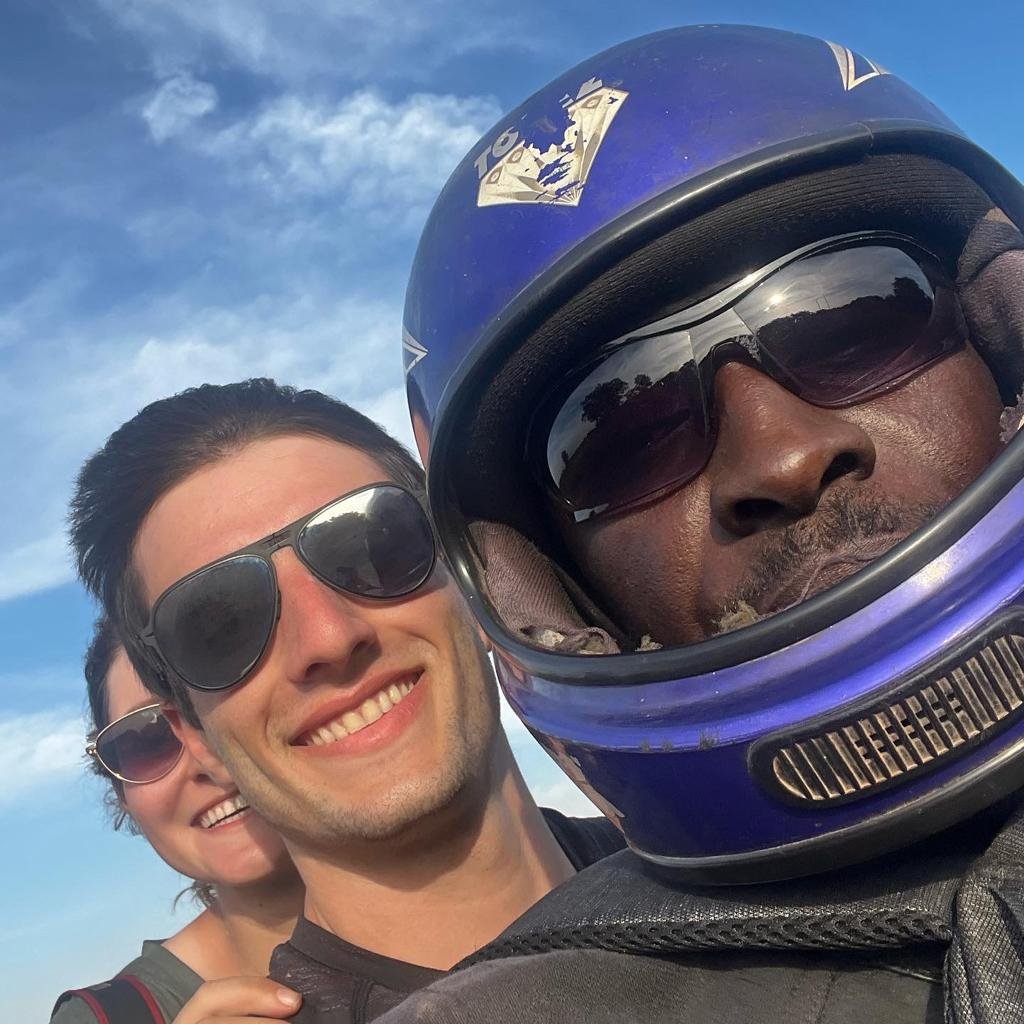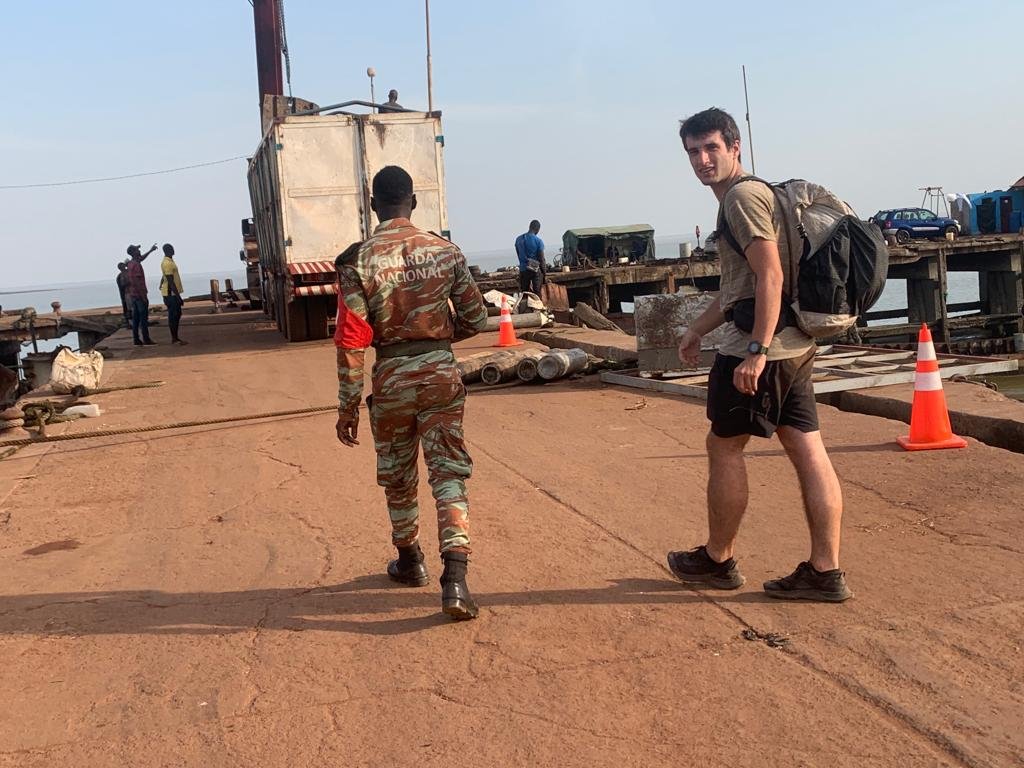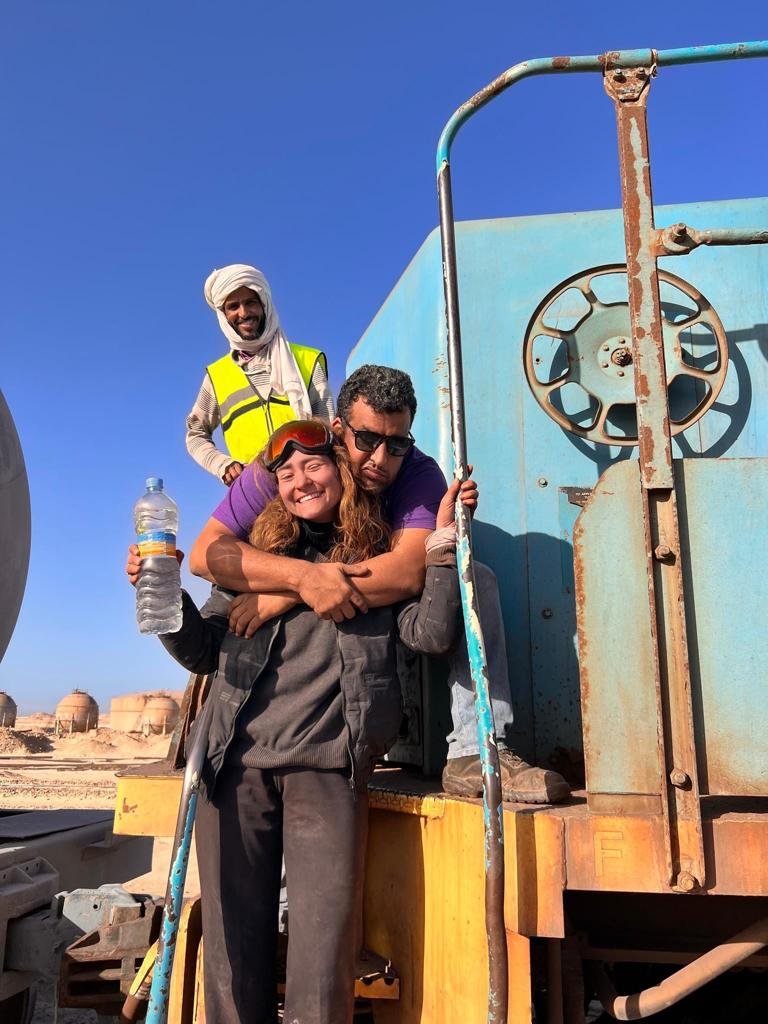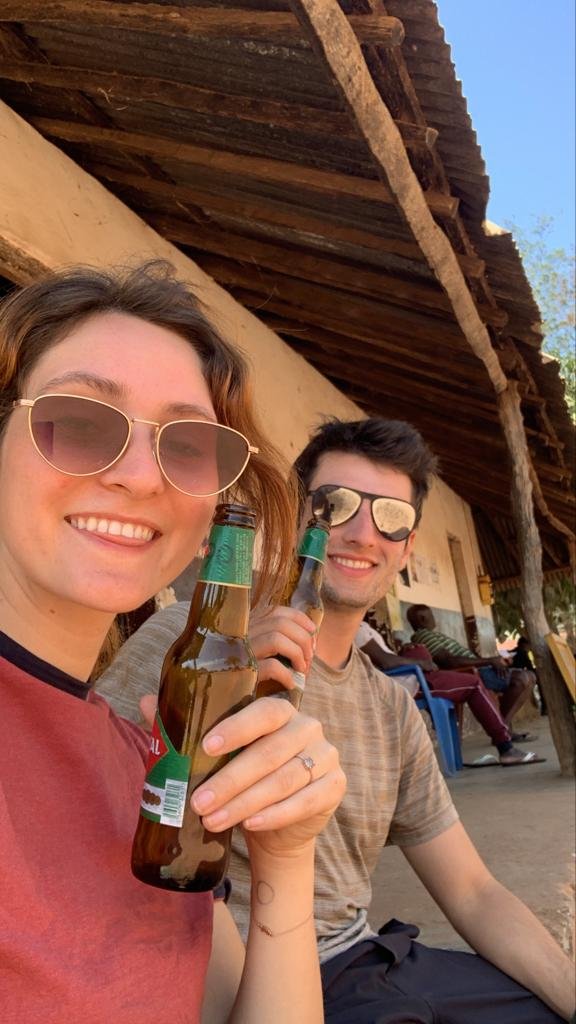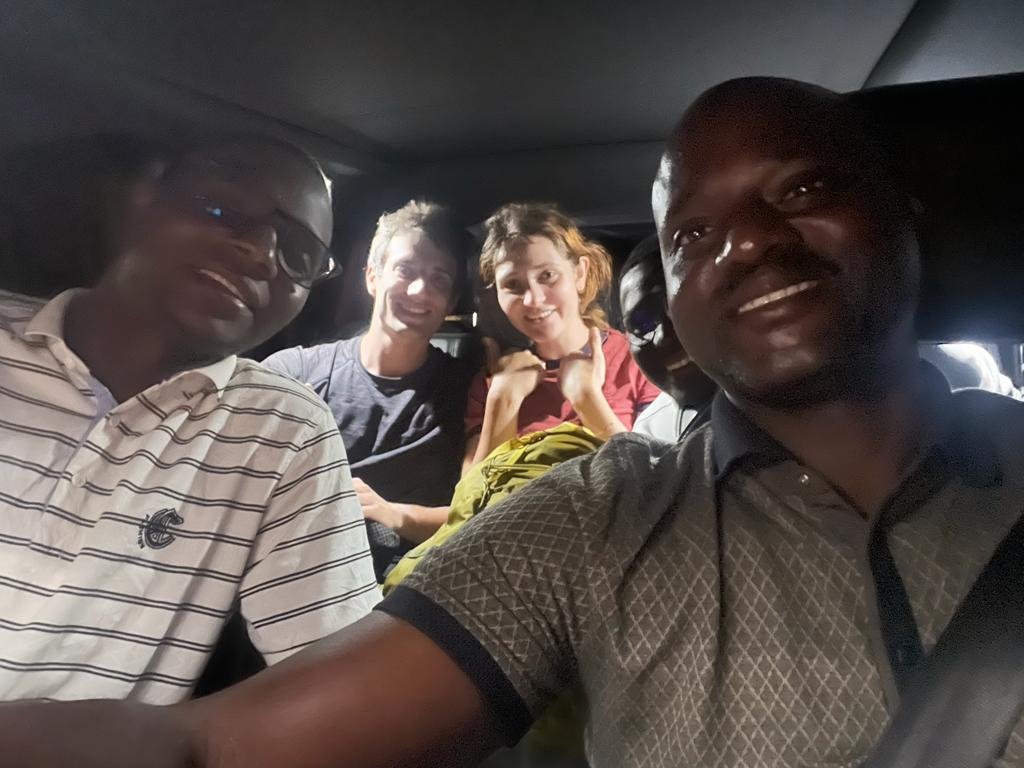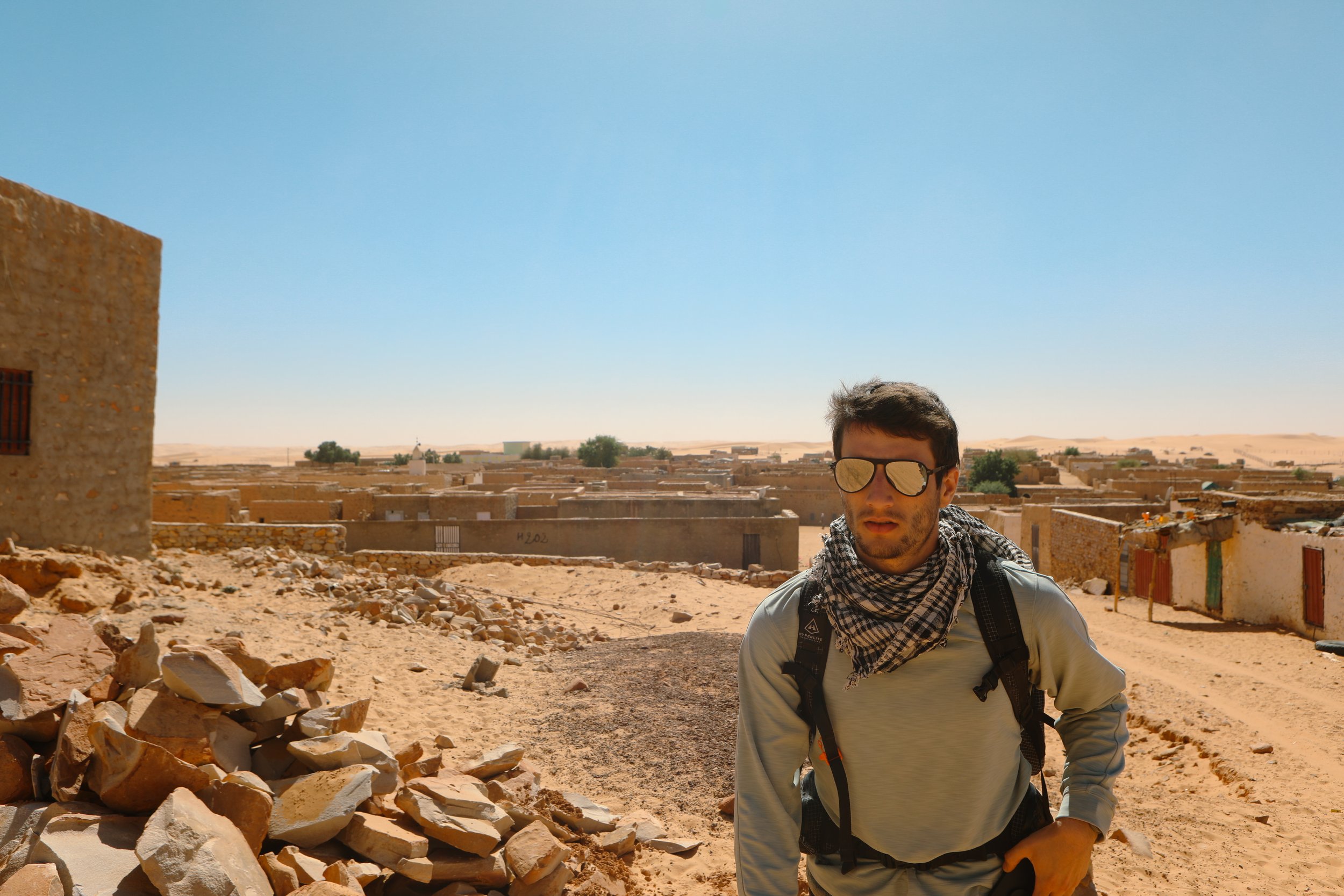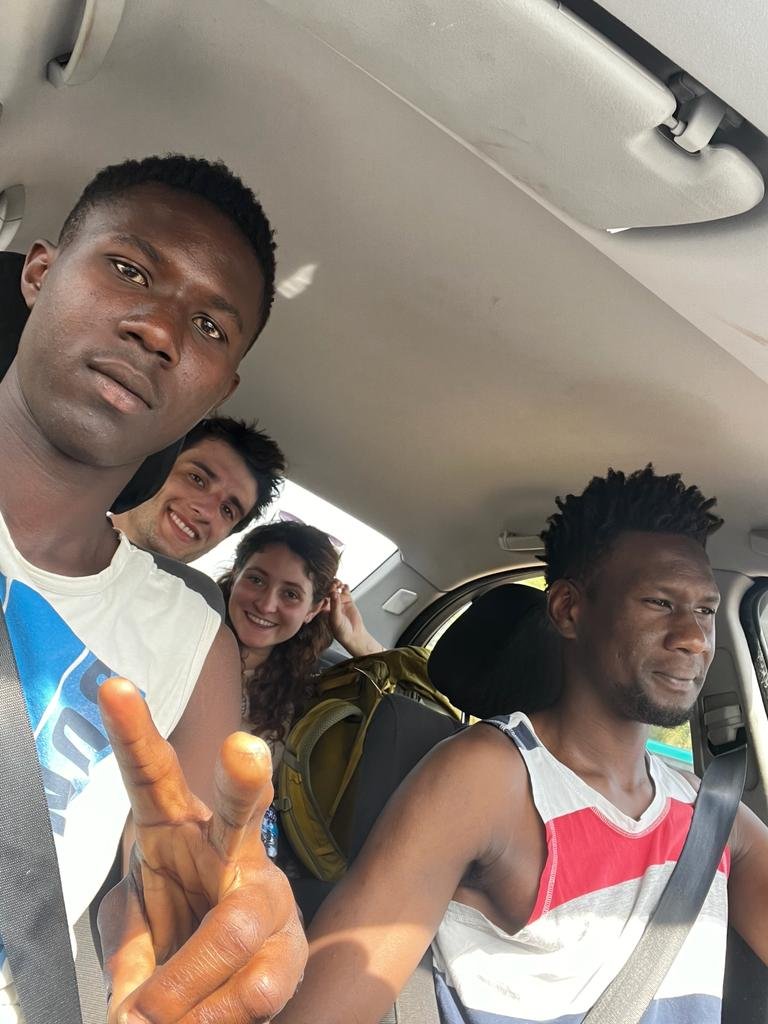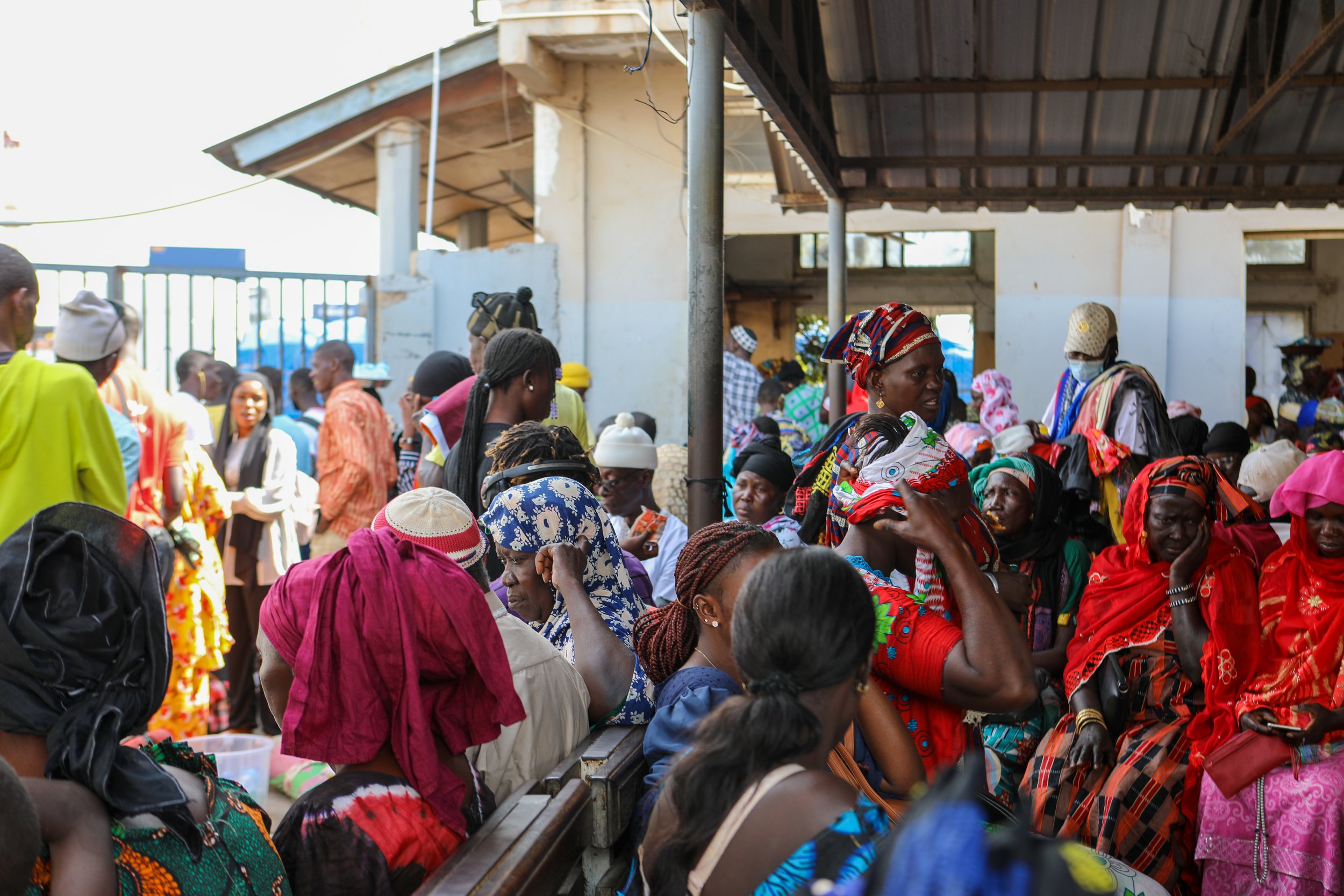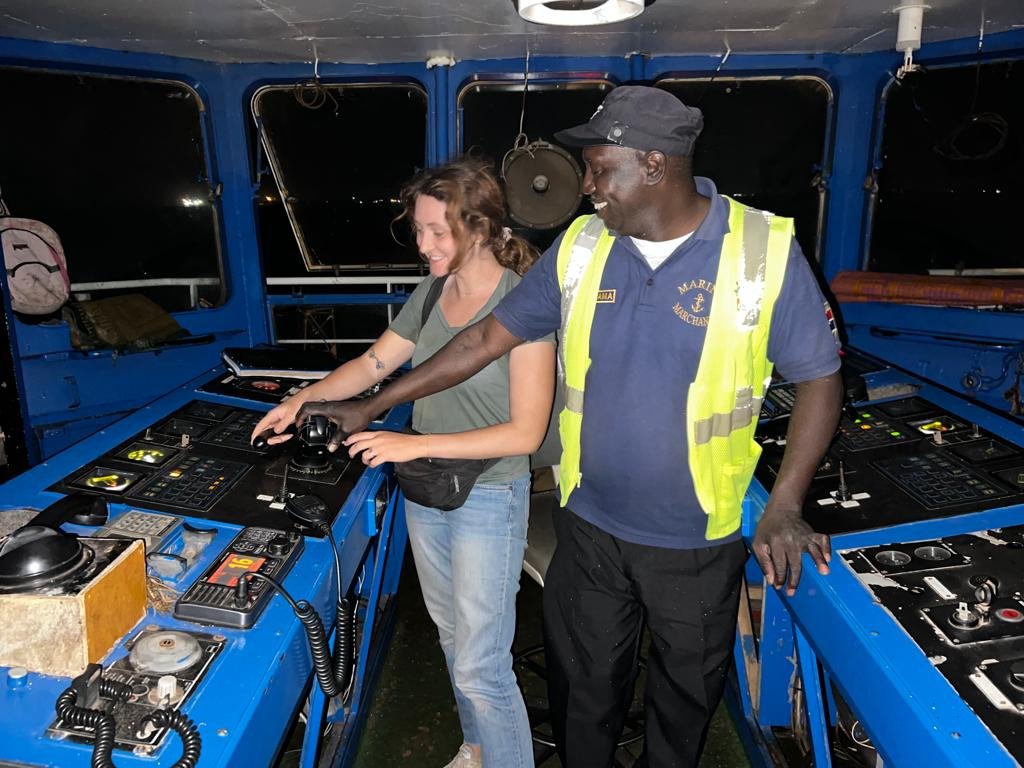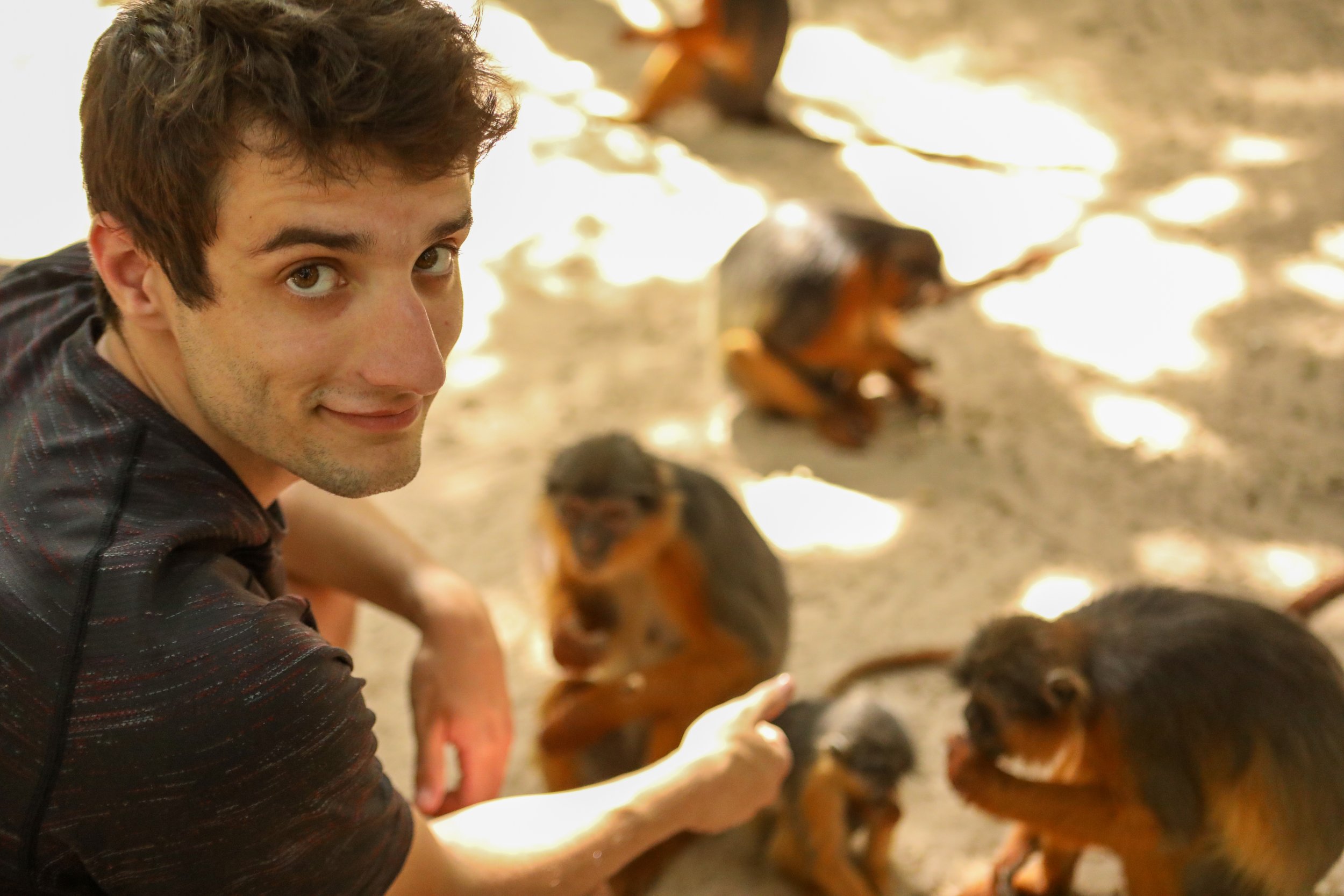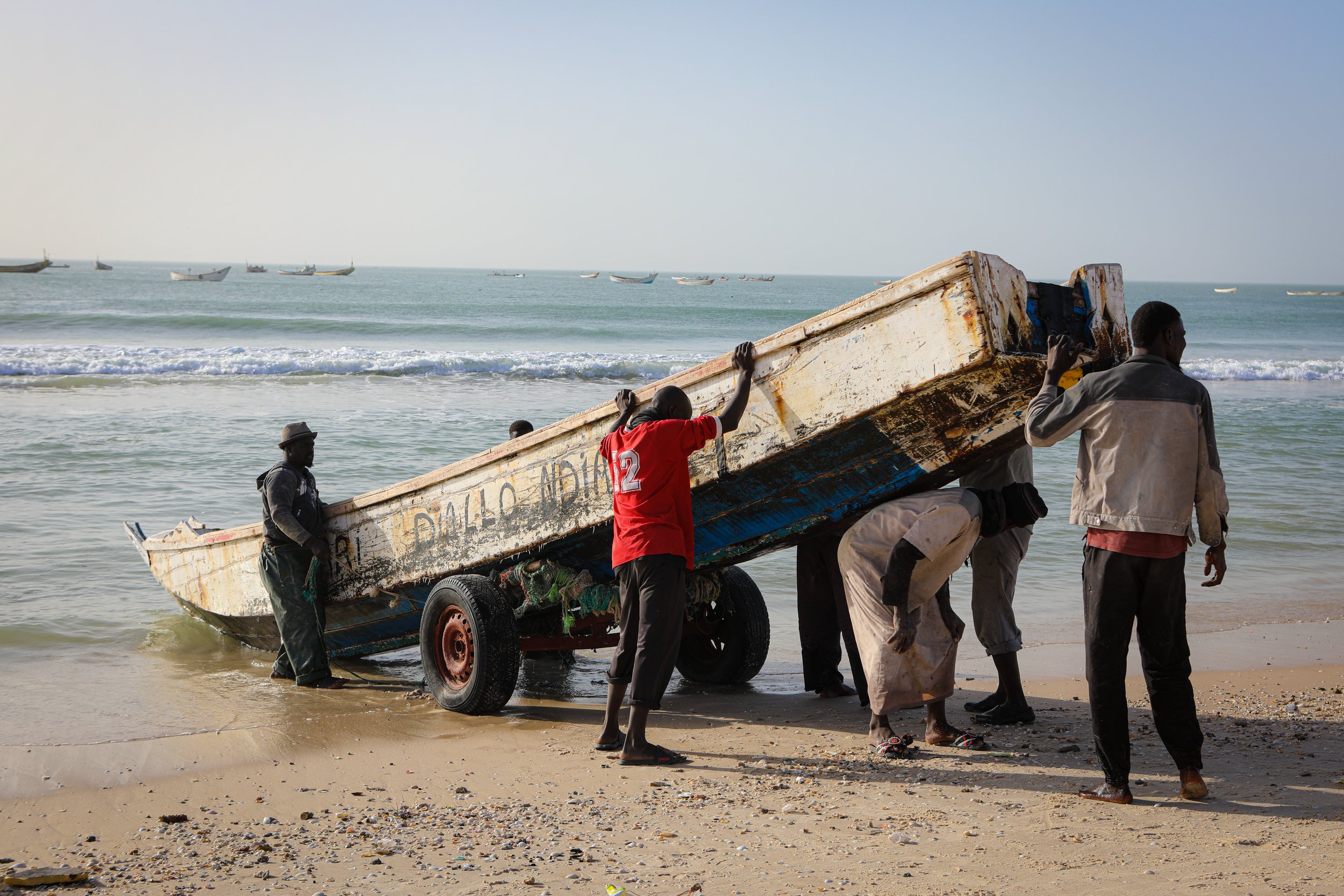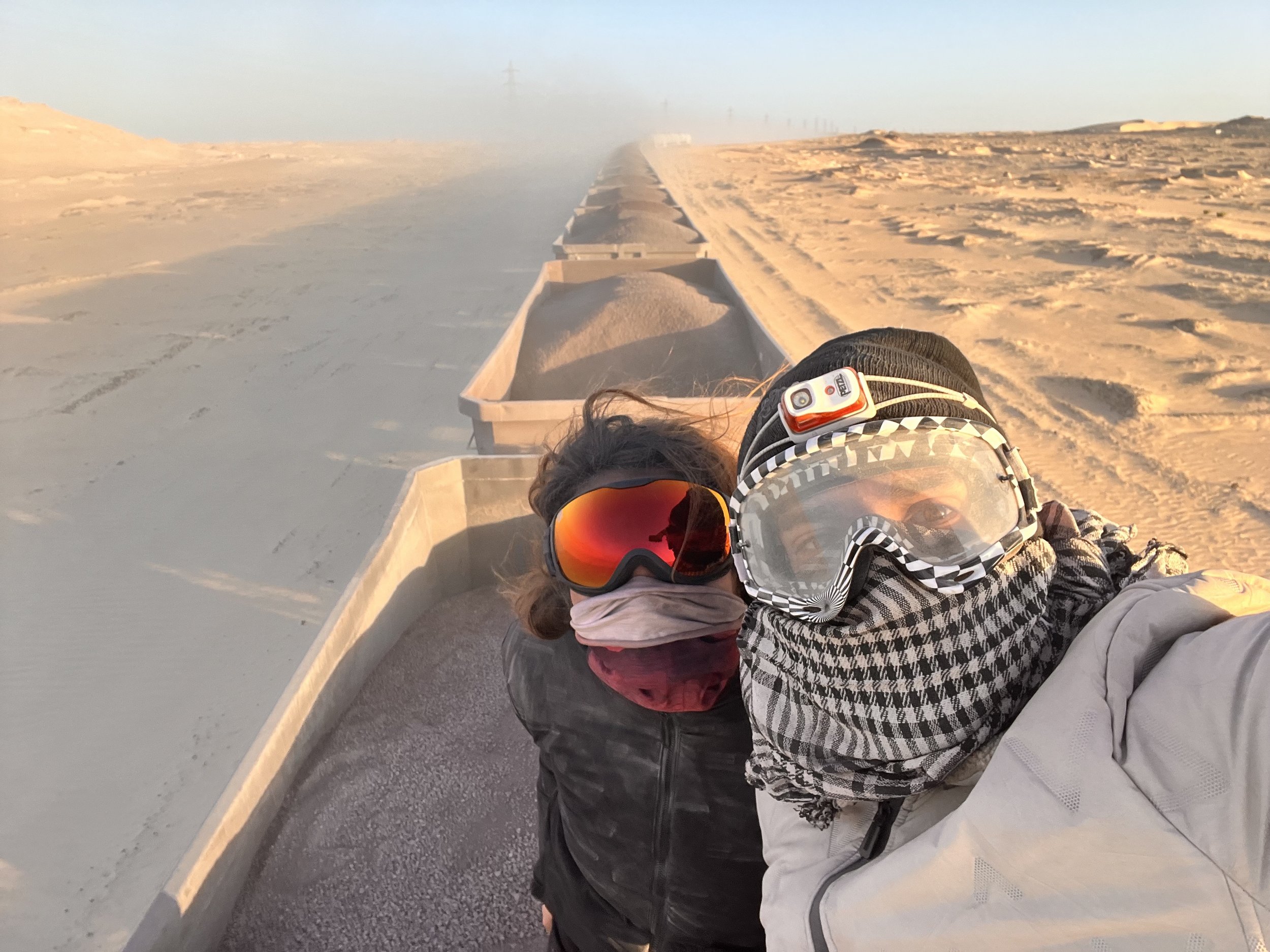When you put your trust in people, they reciprocate. When hitchhiking, you are able to jump into people’s worlds for minutes to hours, (from 1km to 453km), learning about their families, jobs, politics. It is a deep dive, the absolute fastest way into learning about a new place. People are shocked that you are visiting their home and want to hear your thoughts on their country, sharing what they are most proud of. Others want to discuss U.S. politics, asking how you feel about AOC and McCarthy. Some don’t speak the same language or aren’t particularly interested in speaking at all–they just saw you on the side of the road and wanted to give you a ride.
After 93 rides through Mauritania, Senegal, The Gambia, and Guinea Bissau with an average wait time of 6 minutes, it is hard to believe in anything other than the innate goodness of people. The rides vary from Land Cruisers to motorcycles to commercial trucks to locomotives to government vehicles to construction equipment. Nobody asks for money, unless there is a miscommunication; more people attempted to give us money than asked for it. They get concerned for our safety, are impressed by our distance traveled, and all are insistent that we come back and have a meal with their family.
Mauritania was potentially the best singular country experience of my life, nearly completely due to the people we met. When exploring–through cities, fishing ports, the camel market–people seemed unfazed by us, so unused to the experience of tourists that they often didn’t process our existence. We were able to walk through their lives as observers, very unlike the typical travel experience of things moving around you. Every person we came across was extraordinarily kind and helpful, giving us snacks and tea as we rode with them, telling us about new development in the country, what industries were thriving, the intricacies of certain social political dynamics. Someone even provided us with papers to fast track the Senegalese border, just because he could. Many asked for help getting an American visa. We were somewhat nervous about the experience riding on top of the Iron Ore train, as while we knew it wasn’t illegal, we weren’t sure whether people would try to persuade us not to go–however, when we got to the train, we were surrounded by smiles and waves by miners, train inspectors, locals, and police. The only negative experience was when someone thought we were French, which makes sense given the former French colonial presence. When we corrected them, they were incredibly pleased and gave us a high five.
Traveling south from Mauritanian to Senegal was somewhat jarring–after being completely inundated by the Sahara, crossing the border, you see the sand fall away and the landscape come green and lush in a matter of kilometers. The clothes turn colorful and form fitting, the food becomes spicier, and the music starts to sound like drums and excitement. Power dynamics between different local racial groups become less pronounced, white tourists are suddenly visible, and cities become taller and more developed. Snickers and Speculoos disappear, to my disappointment. Fewer people ask us to have dinner with their families and stay at their houses (which seems to be a very Middle Eastern / North African phenomenon), but they remain incredibly kind, excited to talk to us about America, local politics, law school, our families, their families (always with many kids, and sometimes many wives), upcoming construction projects, the impacts of colonialism, etc. We talk to people about our travels, as well as theirs, with many having traveled throughout Europe and Africa for work and for pleasure. Southern Senegal was particularly gorgeous, filled with marshes and greenery everywhere you look. In one car, we discussed the role of climate change, and how domestic wealth inequality has been negatively impacting the environment, drying up wetlands. Bats and palm trees peppered pink and purple skies.
Entering The Gambia was particularly exciting for us given that they speak English (I can only speak so much French). After waking up beachside, we waited for hours for a ferry from Banjul to Berra with hundreds of Gambians trying to get to work, selling snacks and water to their fellow passengers, visiting family. Mere kilometers from the city, we were plunged into the depths of rural Gambia, a beautiful and lively tree-laden, dirt-pathed loop around the country, filled with small villages, young children playing on the street, farms, donkeys, old ladies sitting outside, school busses, and motorbikes (several of which picked us up on our way to Kunta Kinte island, despite having no way to communicate with us whatsoever). The shift between urban and rural in all these countries was quite stark, with clear wealth inequality and differences in physical development. Surprisingly, Gambia felt more remote than parts of Mauritania that were completely embedded in the Sahara, probably because Mauritania depends extensively on foreign products (making American candy available even in the smallest towns), while Gambian villages were widely self-sufficient, making them feel more “foreign” in many ways. We met lots of expats and repatriates: a Gambian man who now works as a taxi driver in Scotland, Lebanese men who own a chocolate shop in Banjul, a British doctor who moved to Gambia.
Guinea Bissau was completely under construction, with every road in the capital being rebuilt with funding from China. It’s a country that runs on natural beauty, plagued by a history of coups and colonialism. There are saltwater surf hippos and hundreds of baby nesting sea turtles–none of which we got to see, as there is only one ferry that runs to the main archipelago every 1-2 weeks. There existed an absurd number of taxis and busses, donkeys were replaced by hogs, French replaced by Portuguese. It was gorgeous, and very, very hot.
I can’t help but feel some of the trust and generosity we encountered stems from cultural factors, a focus on the community and the family. According to my travel buddy Jake’s statistics, which were taken over dozens of countries all over the world, the lowest wait times are in Muslim regions, which fits with my personal experience. When talking to friends and family, I was often asked, “what do they get in return,” “are you trading sexual favors for rides,” “aren’t you afraid of kidnapping,” etc. I really cannot express how deeply safe it feels to be in these cars, where people are more concerned for you than you are for yourself, who want to make sure you get to your destination, who want to make sure you are okay. These experiences force you to consider the individualistic tendencies of western culture, as there is a clear distinction. When you visit a new country, you drink the tea. You eat the food. You talk to the people. You share your world with them, and they share theirs with you. Coming in with a sense of distrust deprives you of the full experience. You must embrace everything–and honestly, hitchhiking is the fullest embrace I have experienced yet.
